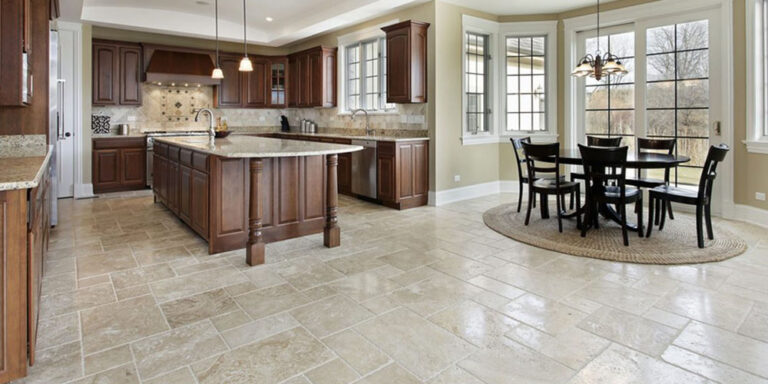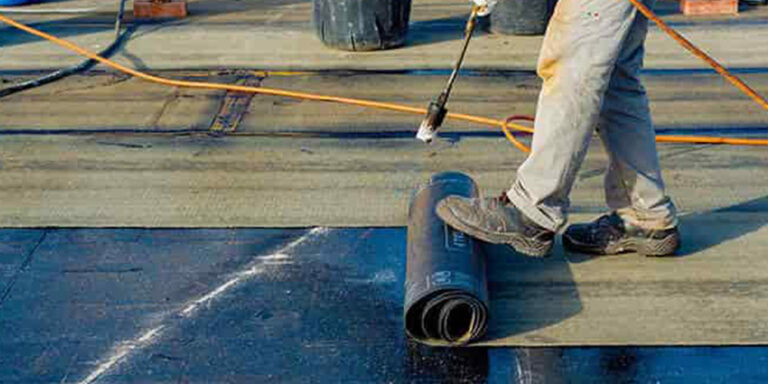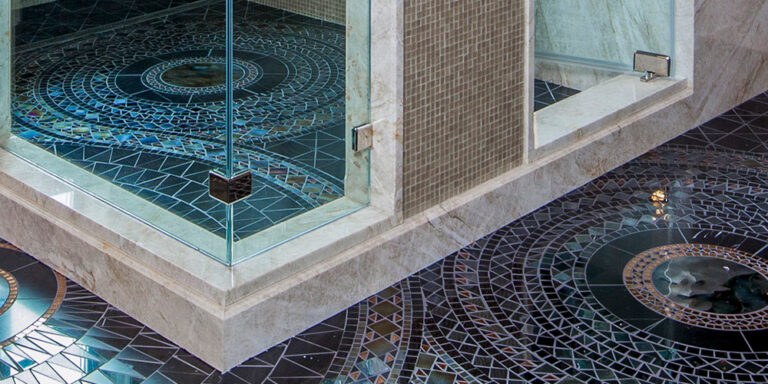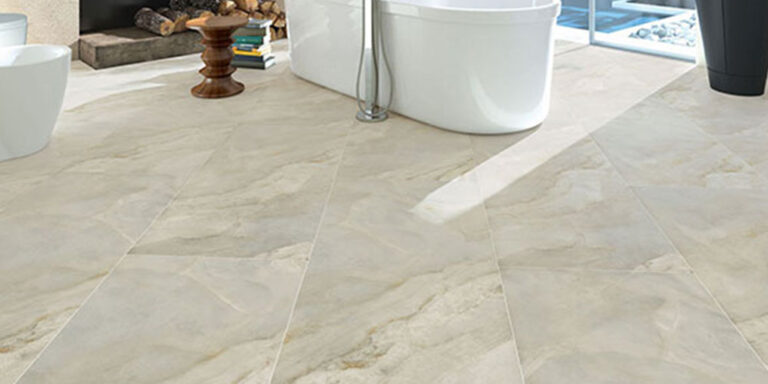Organising home renovations can be quite the prolonged process, deciding on a tile is half the journey as it’s arguably the hardest decision you’ll have to make. The other half is deciding whether you want to hire a tile installer, or to lay the tiles yourself as either choice comes with some major advantages and disadvantages. We’ll be explaining these pros and cons so you’re able to make an informed decision on how you want to proceed.
Advantages of a tiler
There are many advantages of hiring a tile installer, hence why it’s the most common way of doing things. From wanting a stress free process to just not having time there are many reasons as to why you’d hire a tile fitter, we’ve listed the biggest advantages down below:
Easy
Undoubtedly the biggest advantage to hiring a tiler is how much easier the process is. By hiring one you won’t need to research things like which type of adhesive to use, or what sub-floor preparation needs to be done. You’ll be hiring a professional who has probably completed hundreds of jobs just like yours and will be able to identify exactly what materials are needed just by looking at the room you want tiling. They can also help you with some of the bigger decisions you’ve got to make such as what colour grout to use, as this often takes time to decide as different colours create different effects within your tiles. And as they’re laying the tiles, all you need to do is tell them when you’re available for the work to be done and then you can spend the day sitting back watching TV.
It’s a much more stress-free process than doing the job yourself, you don’t need to worry about mistakes or doing it wrong as if you’ve hired a professional, you’ll receive a professional result.
Expertise
If you’re hiring a professional tiler they’ll have a lot of industry knowledge, which can be extremely beneficial. If there’s a certain type of aesthetic you’re looking to achieve chances are they’ll know how to get it, and can even come with you when you go to buy tiles and recommend what you need. They could also give design advice that will really transform your property like adding a shower niche to your bathroom, which is something people don’t often think about.
Another great advantage of a tilers expertise is that they know what they’re working with, they’ll be using good quality reliable tiling tools that they’re accustomed to working with. Whereas if you were to do the job yourself you might opt for cheaper low-quality tools as It may be deemed a one-off job and as the saying goes “a man is only as good as his tools”, so if poor quality tools are used it could be reflected in the area that you’re tiling.
Peace of mind
You’re hiring a professional so you should expect a professional finished product. This protects you from any mistakes you might make when doing the tiling yourself that would negatively affect the result that a tiler would be able to spot and correct. Additionally, tiling can get quite messy, mixtures like adhesive and grout can be quite difficult to remove and can cause damage to walls if not handled correctly so it’s great to have that reassurance that the process is in the hands of an experienced professional who will make a conscious effort to ensure your property is safe.
Additionally, if tiles are being cut they can create splinters or shards, these tend to be very sharp and can be quite painful if stepped on making them quite a hazard. A tiler should be able to avoid creating these shards but if a person is using tools they’re not well acquainted with it could lead to these splinters being made and a safety hazard created if they’re not cleaned up properly after.
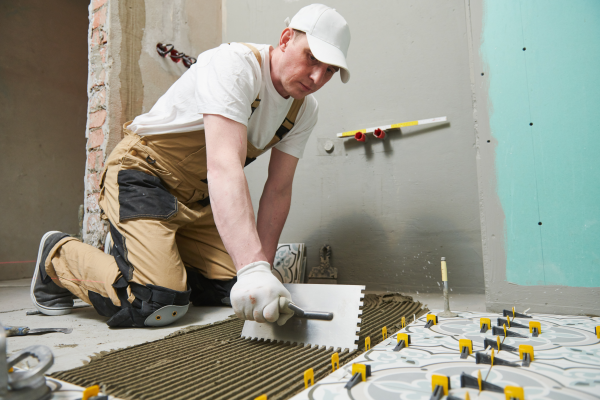
Disadvantages of a tiler
The disadvantages of a tiler share a common theme, that they really aren’t controllable. A tiler decides what their time and work is worth, arguing over pricing will most likely lead to refusal of the job potentially forcing you to do it yourself anyway. It’s the same with time, they’re very unlikely to shuffle around jobs to make way for you as they’ve already committed themselves to these other customers, it would be seen as bad business practice and could damage the tiler’s reputation. We’ve explained further below:
Cost
The biggest disadvantage to hiring a tiler is the cost, you’ve got to pay for both materials and labour, neither of which are cheap. We found this great article explaining the approximate prices for tiling and that it costs approximately £97 per M2 to tile a kitchen, if you add this to the average price of a tile being at £25 (more if your kitchen tiles are larger) you’re paying £122 per M2 for your kitchen. If you have a large kitchen or bathroom this can really add up into the £1,000s quickly. It’s standard practice to get a quote before work starts, so that you know what you’re committing to before the work starts.
Time
Although a professional tiler would most likely complete a job before a DIYer, but that’s if they start at the same time. When you’re doing it yourself you can start work whenever you can/want, however you’re at the mercy of a tilers timetable when you hire one, they could not be available for weeks and if your kitchen is unusable this could be extremely inconvenient.
Advantages of DIY
Skill for life
Doing any sort of DIY in general is a skill gained for life, next time you need to redo your wall tiles for example you’ll be in complete control, deciding what you need, how much you need, and when you want to start. You won’t need to spend as much time researching and pondering over what materials and tools you might need, as you’ll know now through experience what is actually necessary for getting work done and in what quantities.
DIY also tends to be a transferable skill, it might start with redoing your bathroom tiles but could then evolve and you find yourself painting your walls and then even building decking for your garden.
Cost
Cost is probably the biggest reason people decide to go down the DIY route, as previously mentioned tilers can get quite expensive but as you’re doing the tiling there’s no need to hire someone meaning you only need to pay for materials when it comes to completing the project which will be exponentially cheaper.

Disadvantages of DIY
DIY might seem like a great way of saving money but there are many things that can go wrong if you’re doing it yourself, these mistakes have potential to be quite detrimental down the line. So as fun as it may seem there are some disadvantages of DIY, and they are:
Experience
If you’re an experienced DIYer tiling may be an easy job, but if it’s your first time attempting something like this it can be quite the daunting task. Because it’s your first time there’s a lot of potential for mistakes being made, and the difficulty with this is a professional tiler will know easily how to correct any mistakes, but for an amateur it wouldn’t be so easy to correct, you’d most likely want to google how to resolve these mistakes, which if you’ve got adhesive or grout mixed could result in it drying out or solidifying meaning you could have tiles incorrectly stuck down or the adhesive could dry in the mixing bucket so you’d probably need to buy more adhesive and maybe even another bucket.
Worst Case Scenario
The worst case scenario for doing your own tiling is things going wrong and deciding it’s best to get a professional in. This is the worst case as if you’re mid-job, you would’ve bought all the tools needed which will now collect dust, and you will most likely need to replace all the materials like tiles and adhesive that you’ve used up until that point as it’s not recommended to re-use tiles that have already had adhesive applied to them. And to make matters worse, it might take the tiler you hire even longer to get the job done as they’ll have to correct or undo any mistakes that might’ve been made like taking adhesive off or pulling up any sub-floor prep, and as tilers charge for their time it will only make things more expensive in the end.
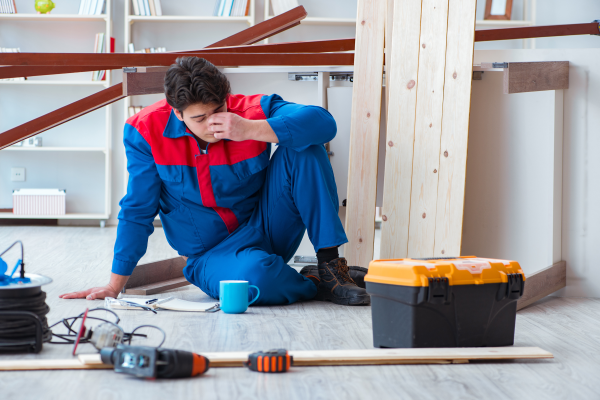
We hope this article has been a useful resource in helping you decide on which route to take.
We hope this article has been a useful resource in helping you decide on the best route to take, you can find our range of tiles here

